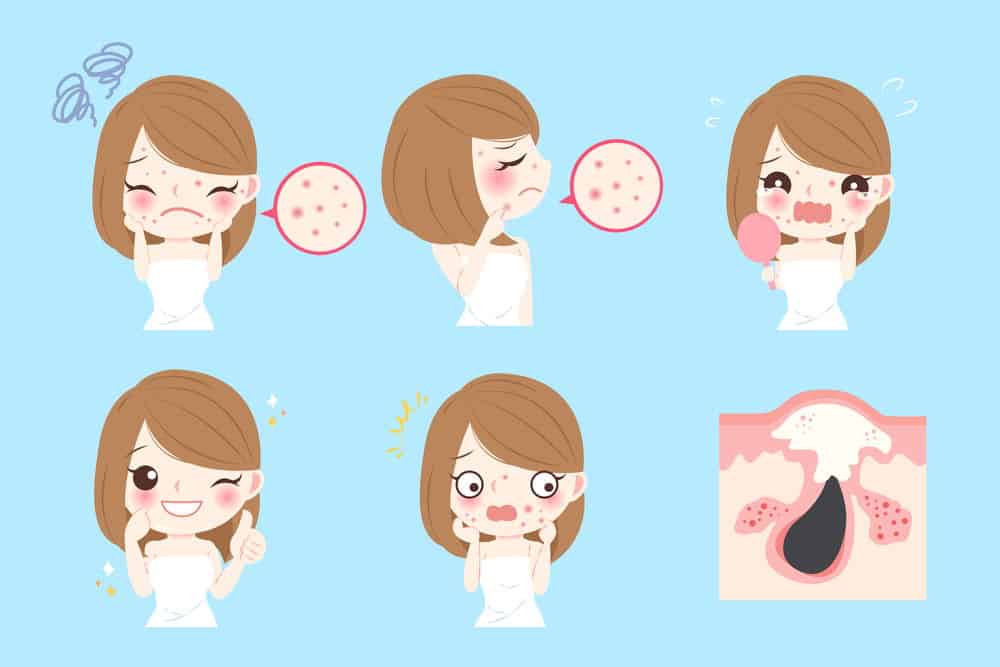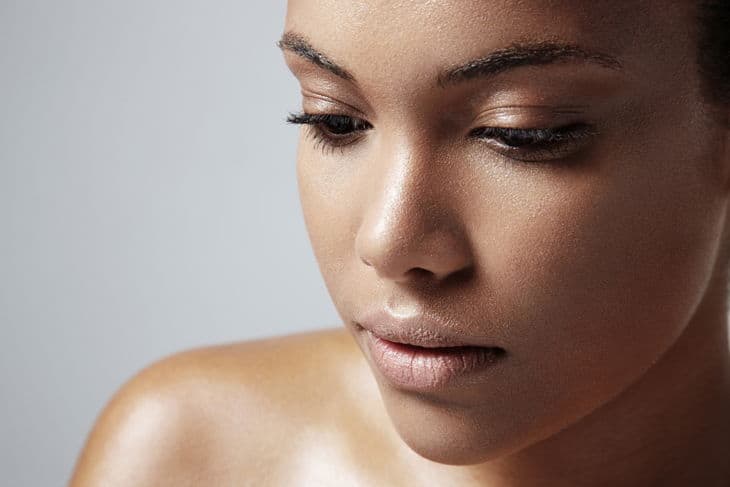
As a person with naturally oily/combination skin, I went through most of my adolescence resigned to my reality that I would never have the great skin other people my age were lucky to have.
It was always either a toss-up between having hydrated skin and all that icky oil eventually clogging my pores and resulting in a breakout OR living through a relatively pimple-free existence with skin so dry from being stripped of any kind of moisture.
I chose the latter and ended up with such lackluster skin throughout most of my adolescence. At least I was free of pimples and blackheads, right?
Well, if I had known then what I knew now, I would not have needlessly suffered through all that. After all, we can have the best of both worlds in the form of oil-free non-comedogenic moisturizers. But first, we must know the enemy better than ourselves. Let us start with those tiny things where pimples come from—comedones.
What Are Comedones?
A comedo is simply a medical term for a blocked hair follicle or pore and they are termed comedones when there is more than one. They occur as flesh-colored bumps on the skin, especially on the forehead and chin of acne-prone individuals.
Although the use of the word comedones might make some people anxious as medical terms often do, you might already be more familiar with other forms of comedones.
- Open comedones are more popularly known as blackheads. Before you go thinking that the color of blackheads results from the dirt clogging the pores, it actually comes from the skin pigment, melanin, which is also essential in providing the skin with protection against ultraviolet radiation.
- Closed comedones are what you call the whiteheads. From the name itself, whiteheads occur when the pore is totally blocked. They are usually not as obvious as the open comedones but can go deeper into the skin and cause some inflammation, resulting in the dreaded acne.
How Do Comedones Form?
Comedones are essentially hair follicles that have become blocked by cellular debris and sebum, the oil that is naturally secreted by the skin. The outlet of sebum is through the hair follicle, a complex that is called the pilosebaceous unit (“pilo” meaning hair and “sebaceous” from the sebaceous gland that secretes sebum). When these are blocked, the sebum has nowhere to go and can accumulate in the hair follicle, causing comedones to form.
The factors that affect the development of comedones are related to either increased shedding of the epidermis, which is the uppermost layer of the skin, or the increased production of sebum.
- In puberty, there is an increase in sebum production brought about by the effect of hormones. This will then lead to the pores becoming clogged by excess sebum, resulting in comedones and acne.
- Injuries that cause the rupture of the hair follicle can also result in the formation of comedones. Such practices include squeezing pimples, abrasive washing, and harsh chemical peels.
- A decrease in linoleate, a salt from the essential fatty acid called linoleic acid, in the sebum can also cause accumulation of keratin on the surface of the skin as well as reduce the barrier function of the skin. This leads the pilosebaceous unit to clog and form comedones.
- Certain chemicals-especially oily ones-that are found in pomades and some cosmetics can also clog the pores.
Can Moisturizers Cause Comedones To Form?
Yes! Moisturizers with heavier formulations as well as certain other cosmetics, especially when used in humid conditions, can most certainly block the pores and cause comedones to form.
Should People with Oily Skin Skip Moisturizers Altogether?
The thing about people with oily skin is that we naturally produce the oil or sebum that keeps our skin moisturized throughout the day. The sebum not only keeps the skin moisturized, it also provides an effective barrier against dirt and bacteria to some extent.

While this might have been good enough in the olden days, the harsher environmental conditions of the world today can do quite a number on the skin. The sebum that oozes out of our pores not only carries the bacteria-fighting oil, it also comes with all the other debris and pollutants that are stuck to our skin. Left on its own, this could cause blockage of pores, resulting in comedones and acne.
Because it is necessary to wash our face regularly to relieve our skin of these impurities, we also strip our skin of the sebum that protects it and keeps it moisturized.
So no, people with oily skin should not skip moisturizers but they must choose a type of moisturizer that answers to the uniqueness of their skin and not worsen their problems with it.
What Moisturizers Can I Use For The Acne-prone Skin?
Acne-prone or oily/combination skin types can benefit from oil-free moisturizers that do not settle heavily on the skin and end up clogging the pores. Because we already produce much oil on our own, thank you very much, what we need instead are light moisturizers that do not contain all that icky, extra oil.
Do these moisturizers even exist? Why, yes. Of course, they do. The trick is to find a moisturizer that has the following words: oil-free and non-comedogenic. This way, we ensure that our skin gets all the hydrating support it needs without our pores having to suffer the effects of it.
Conclusion
People who have oily/combination skin are prone to having breakouts because the oil or sebum that is produced excessively by the sebaceous glands eventually end up clogging our pores, resulting in the formation of comedones, which could eventually lead to inflammation and acne.
However, regularly washing our skin could also strip it of its natural moisture and barrier against a harsh environment, which is why even those with oily skin still need to moisturize regularly.
The problem with moisturizers is that they also have the tendency to settle heavily on the skin and block the pores, which also results in comedones.
The trick is to find a moisturizer that balances the thin line between hydration and allowing our pores to breathe. This is why we should especially go for oil-free non-comedogenic moisturizers as they not only keep our skin wonderfully hydrated but they also do not stress the skin further by blocking the pores and causing breakouts.
Did you find this article helpful in dealing with comedones and acne-prone skin? Do you use moisturizers regularly to keep your skin hydrated and healthy? What are your other tips for maintaining healthy, comedo-free skin? Let us know in the comments below and don’t forget to share this article with your family and friends!

Hi Everyone, BeYoungAholic’s aim is to help women who have lost their self-confidence because of the way they look. We will provide you tips and bits of advice on how to take care of yourself and maintain your youthful look. So, Enjoy the blog!
